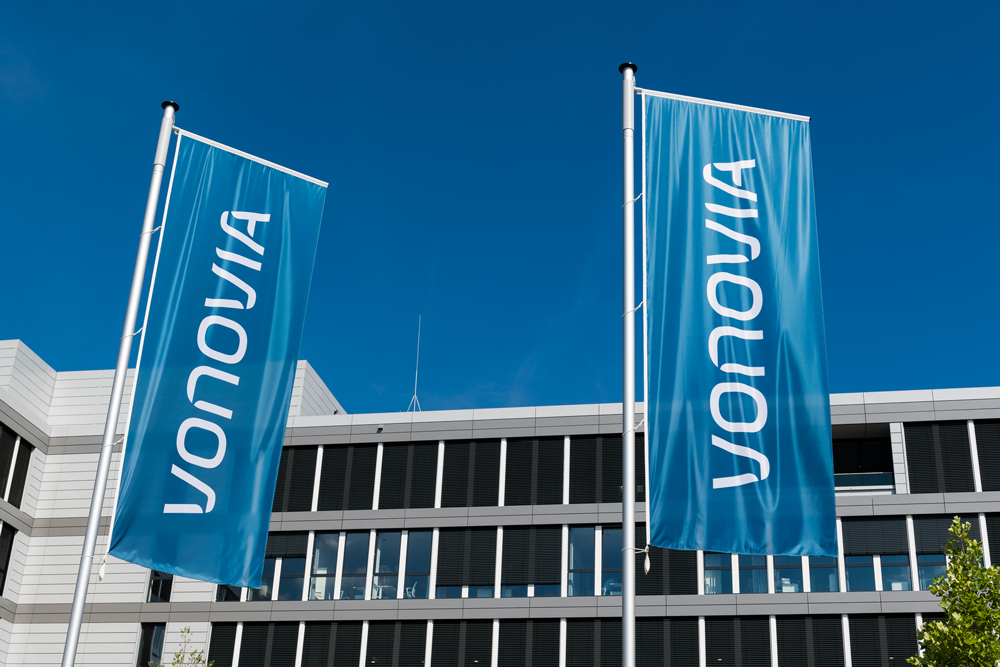(4) Internal Control System
The Internal Control System (ICS) comprises the basic principles, procedures and regulations aimed at supporting the effectiveness and cost-effectiveness of our business activities, ensuring due and proper and reliable internal and external accounting and ensuring compliance with the legal provisions that apply to the company.
All key processes at Vonovia are recorded and documented centrally with the help of a process management software solution. In addition to the relevant process steps, this documentation highlights key risks and controls in the interests of a process-oriented internal control system (ICS). It provides the binding basis for subsequent evaluations, audits and reporting to the executive bodies of Vonovia SE on the effectiveness of the ICS within the meaning of Section 107 (3) sentence 2 of the German Stock Corporation Act (AktG).
Overall responsibility for structuring and implementing the ICS lies with Vonovia’s Management Board. The Management Board delegates this responsibility to process and control owners. The Internal Audit department provides support in the further technical development of the ICS in addition to performing its primary audit duties in full. Internal Audit is responsible for providing technical support for the documentation software, with administrative support being provided by IT.
The aim of the accounting-related internal control and risk management system is to ensure due and proper and legally compliant financial reporting pursuant to the relevant regulations. The accounting-related internal control and risk management system is embedded in the overarching Group-wide risk management system.
Organizationally, responsibility for preparing the financial statements lies with the Chief Financial Officer’s (CFO) department and, in particular, with the Accounting department. The Accounting department accordingly exercises the authority to lay down guidelines for the application of relevant accounting standards as well as for the content and timing of the steps in the financial statements preparation process.
From the organizational and systems side, the preparation of the financial statements for all companies included in the consolidated financial statements as well as the preparation of the consolidated financial statements themselves are performed in the central shared service centers, which ensures consistent and continual application of accounting principles in a uniform financial statement preparation process. Furthermore, through the shared service center functions it is ensured that both content and organizational changes in the requirements are incorporated in the financial statement preparation process.
The financial statements of the companies included in the consolidated financial statements – with the exception of the companies in Sweden and the investments in France and the Netherlands – are located in an IT SAP environment. They are subject largely to uniform charts of account, accounting guidelines, processes and process controls. The requirement of separation of functions and the dual-review principle are taken appropriate account of with preventive and also subsequent checks. The financial statements of the Deutsche Wohnen Group are managed in a separate IT environment. The subsidiaries of the Deutsche Wohnen Group as well as those in Sweden and the investments in France and the Netherlands report their data as part of a structured IT-based data recording process.
The relevant financial statement data of the individual companies are made available to the SAP consolidation module via an integrated, automated interface with comprehensive validation rules for further processing and preparation of the consolidated financial statements. An authorization concept is in place granting access to the financial statements in line with the respective job profile of the employee.
Newly acquired companies are incorporated into the internal control environment as part of a structured integration process, which includes integration in terms of both IT systems and processes relating to financial statements.
Once the financial statements have been drawn up, the annual and consolidated financial statements, including the consolidated management report, are submitted to the Audit Committee of the Supervisory Board. The Committee then makes a recommendation for the Supervisory Board to adopt or approve them. This examination may include discussion with the auditor and is subject to the auditor’s report. The Audit Committee is continually involved in the establishment and refinement of the accounting-related internal control and risk management system.



